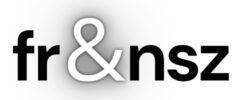Eliot Higgins – We Are Bellingcat (2021)
De ‘blurb’ op de de kaft stelt dat het boek leest als een thriller; dit is zeker geen desinformatie. Maar daarnaast is het ook een klassiek ‘coming-of-age’ verhaal, met daarbij ook nog diepgravende analyses van enkele recente gebeurtenissen van historisch belang. De auteur overtuigt in zijn stelling dat eigenlijk iedereen een steentje kan bijdragen in de strijd om de waarheid boven tafel te krijgen (i.e., the ‘information wars’).

Evidence exists and falsehoods exist; people still care about the difference.
The response to information chaos is transparency.
Newspapers based their sales on the notion that they alone accessed the corridors of power as the average citizen could not. They cultivated confidential sources and wielded influence to extract what they wanted. […] Our work must stand in opposition to the worst traditional journalism. Our sourcing would remain as open to public scrutiny as possible. Political agendas should have nothing to do with our work. And evidence-based citations had to underpin all findings. Lastly, we would never become a closed trade whose selling point was proximity to power.
Is WikiLeaks open-source investigation? Absolutely not. WikiLeaks was about leaking classified information, while open-source investigators analyze what sits in public. […] WikiLeaks could be considered a potential source among many that would to be cross-referenced.
The motto: Identify issues both overlooked and discoverable online; verify all evidence, and never indulge in speculation; amplify what we learn, while amplifying the field as a whole
The defining trait of the ‘Counterfactual Community’ is not scepticism, but cynicism. While sceptics say, ‘Prove it’, cynics say, ‘Who stands to gain?’. Invariably, they already have an answer in mind. […] The badgering can be irksome, but it is useful too. Nay-saying requires us to justify every scrap of evidence, which sharpens our work.
The first generation of online fact-checkers followed a ‘publish and pray’ approach. A second iteration sought to affect public debate more directly, confronting the sources of fakery, demanding corrections in print, complaining to standard bodies, while pressuring institutions to take action. The third iteration of fact-checkers must meet the scale of the internet, probably through massive collaborations that disregard national frontiers.
